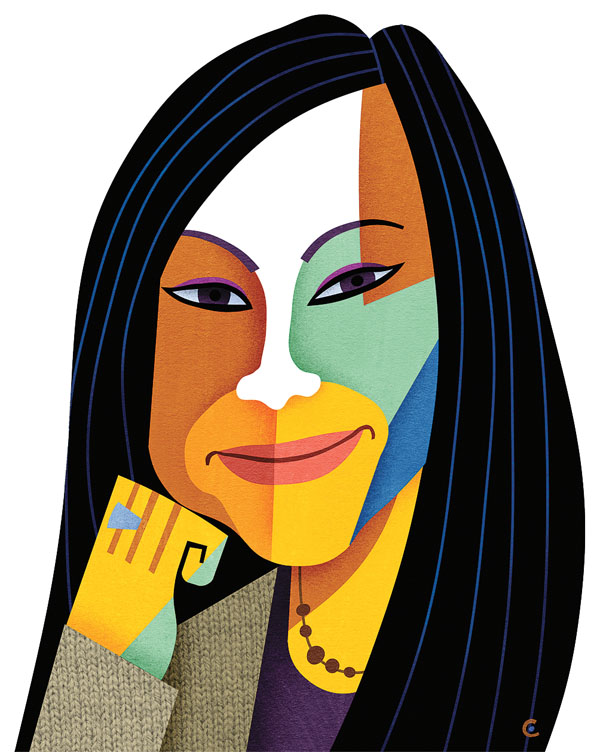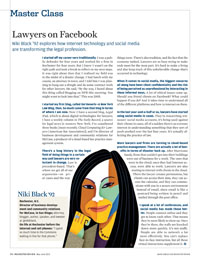Master Class
 (Photo: David Cowles for Rochester Review)
(Photo: David Cowles for Rochester Review)I started off my career very traditionally. I was a public defender for four years and worked for a firm in Rochester for four years. But I knew I wasn’t on the right path and took a break to reflect on my next steps. It was right about then that I realized my field was in the midst of a drastic change. I had lunch with my cousin, an attorney in town, and I told him I was planning to hang out a shingle and do some contract work for other lawyers. He said, “By the way, I heard about this thing called blogging on NPR this morning. You might want to look into that.” This was 2005.
I started my first blog, called Sui Generis—A New York Law Blog, then. So much came from that blog in terms of where I am now. Now I have a second blog, Legal iPad, which is about digital technologies for lawyers; I have a weekly column in The Daily Record, a source for legal news in western New York; I’ve coauthored three books [most recently, Cloud Computing for Lawyers (American Bar Association)]; and I’m director of business development and community relations for MyCase, a producer of a cloud-based law practice management system.
There’s a long history in the legal field of doing things in a certain way and lawyers are very reluctant to change. Law is precedent-based. That’s where we get all of our arguments—on prior cases and the way things were. There’s also tradition, and the fact that the economy tanked. Lawyers are so busy trying to make ends meet for the most part. It’s hard to make a living and also keep track of this unbelievable change that’s occurred in technology.
Niki Black ’92
Rochester, N.Y. Director of business development and community relations for MyCase, in San Diego;
attorney, blogger, author, speaker, and tweeter at @nikiblack.
On life at Rochester before the Internet and cell phones: “I spent so much time in the Commons waiting in line for that phone.”
When it comes to social media, the biggest concerns all along have been client confidentiality and the risk of being perceived as unprofessional by interacting in these informal ways. A lot of ethical issues come up. Should you friend clients on Facebook? What could happen if you do? And it takes time to understand all of the different platforms and how to interact on them.
In the last year-and-a-half or so, lawyers have started using social media in cases. They’re researching witnesses’ social media accounts, it’s being used against their clients in cases, all of a sudden there’s an extreme interest in understanding something that they sort of pooh-poohed over the last four years. It’s actually affecting the practice of law.
More lawyers and firms are turning to cloud-based practice management. There are actually a lot of benefits in terms of disaster back up. After Hurricane Sandy, firms that couldn’t get into their buildings were out of business for a week. The ones that were in the cloud, once they had Internet access, were able to work. Lawyers are also starting to interact with clients in the cloud. There the lawyer creates permissions, but clients can access their data, they can access the calendar, and they can communicate with you in a secure environment instead of email, since email is like a postcard being written in pencil and mailed through the post office.
I speak at a lot of conferences, and social media has made those better. People connect online and they get to know each other. That means they’re more likely to show up. Once they’re there, the walls are knocked down more quickly. It’s not stuffy. People are able to network a lot more effectively. You can’t replace face-to-face interaction, but all these virtual interactions supplement it.

